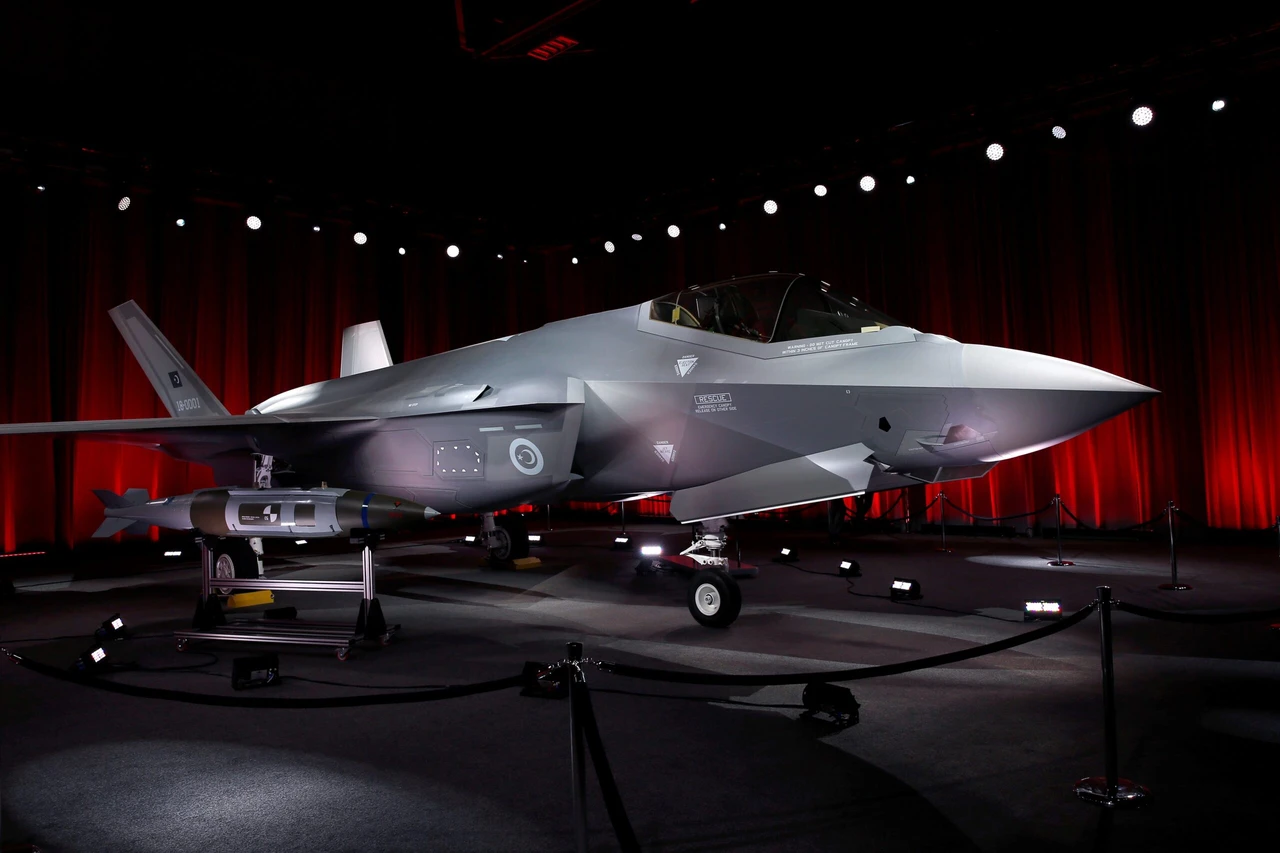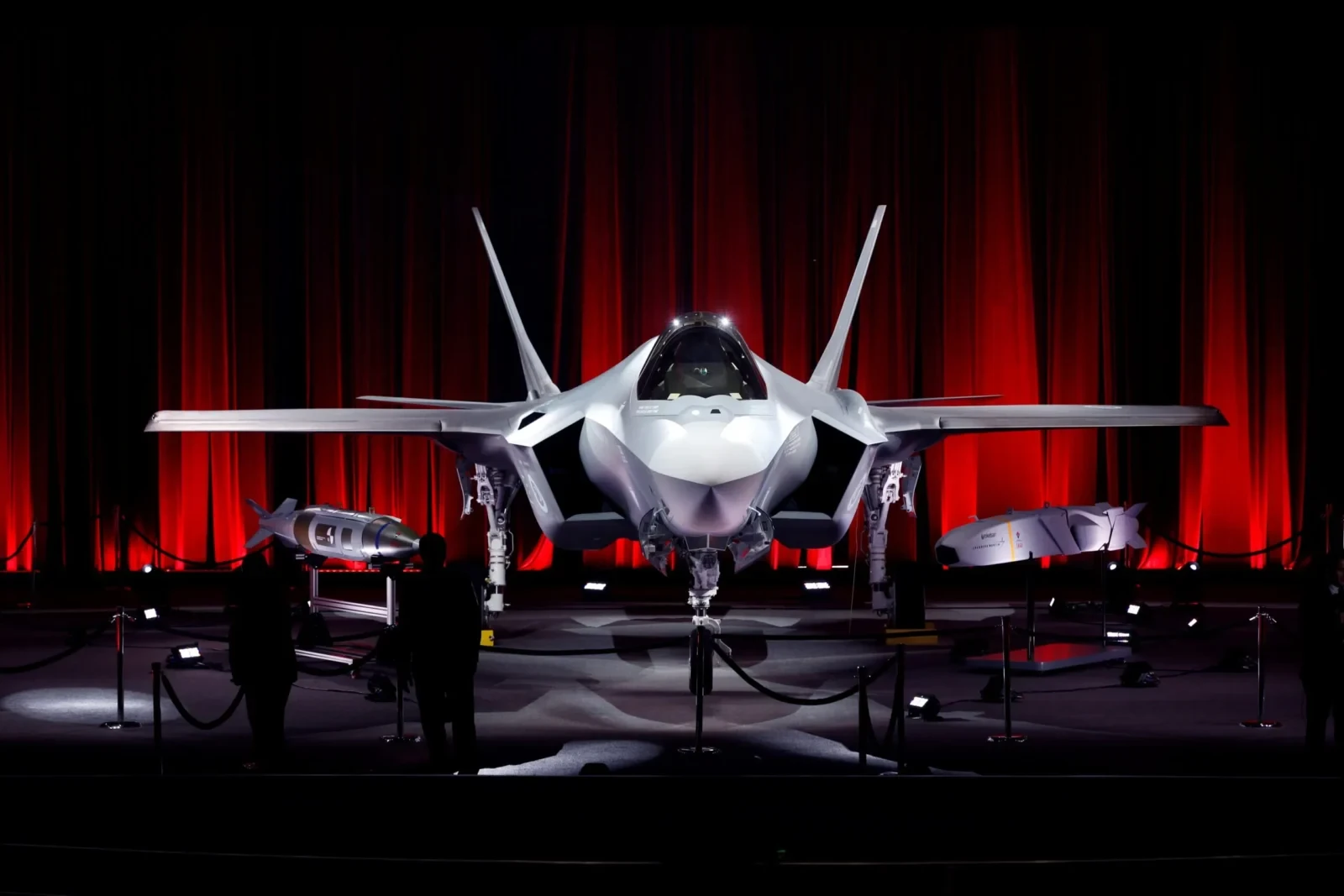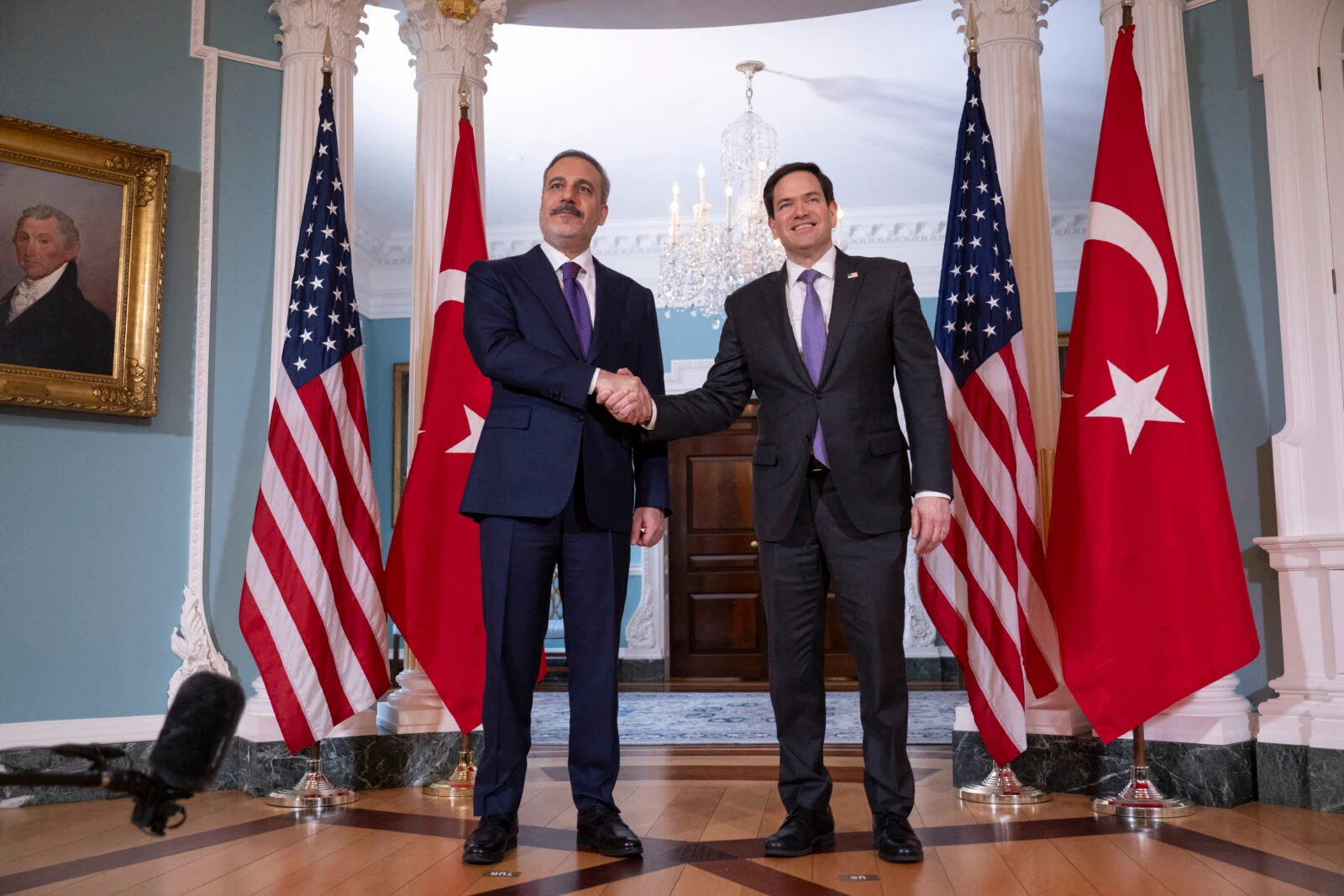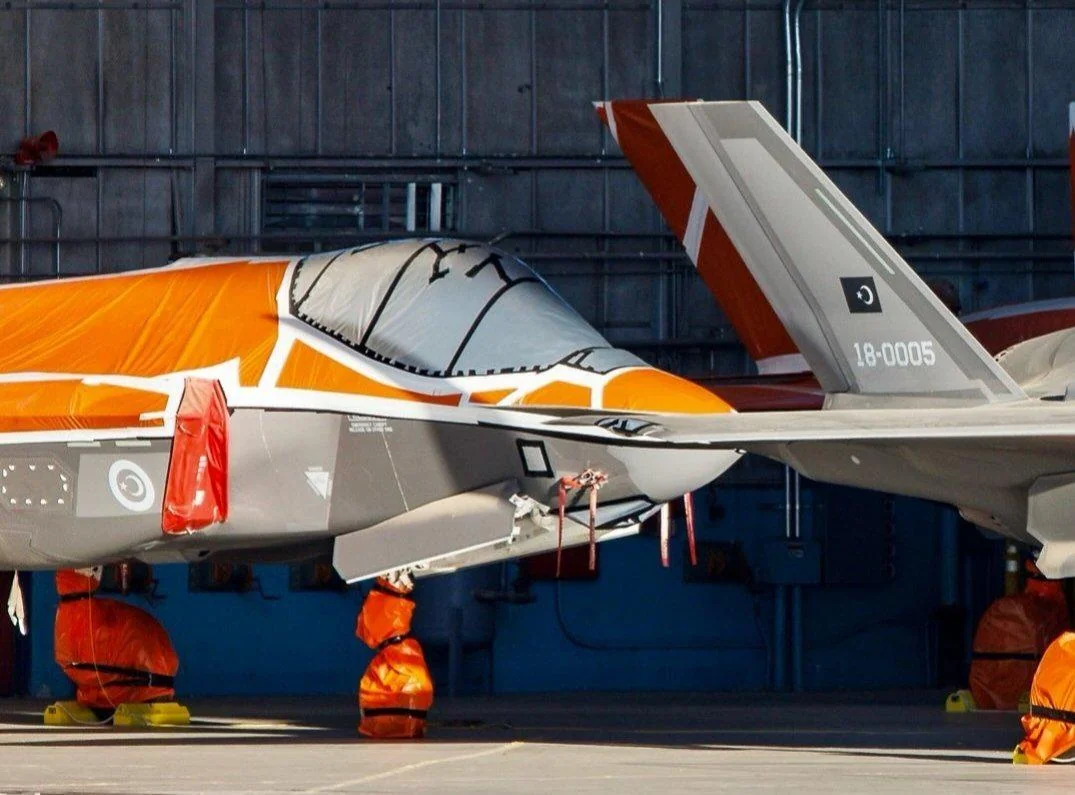Israel’s Netanyahu opposes F-35 sale to Türkiye, lobbying US against deal: Report
 A F-35 fighter jet is seen as Türkiye takes delivery of its first F-35 fighter jet with a ceremony at the Lockheed Martin in Forth Worth, Texas, United States on June 21, 2018. (AA Photo)
A F-35 fighter jet is seen as Türkiye takes delivery of its first F-35 fighter jet with a ceremony at the Lockheed Martin in Forth Worth, Texas, United States on June 21, 2018. (AA Photo)
Israeli Prime Minister Benjamin Netanyahu has reportedly been actively lobbying U.S. Secretary of State Marco Rubio to block the sale of F-35 fighter jets to Türkiye, citing strategic concerns over Ankara’s growing presence in Syria, three sources told Middle East Eye, including two senior Western officials.
According to the officials, Netanyahu raised the issue in multiple calls with Rubio during March and April.
A third source familiar with the matter confirmed that the Israeli leader has been pressing Rubio on the arms deal.
It’s not known if Netanyahu raised this matter directly with U.S. President Donald Trump, which was expected during the meeting at the White House—the Israeli prime minister’s second visit this year.

Netanyahu, Rubio align against Turkish F-35 acquisition
Western officials claim that Netanyahu views Rubio as a key ally in opposing the F-35 sale to Türkiye.
Sources speaking to MEE claim that Netanyahu brought up the F-35 issue in a conversation with Rubio ahead of the latter’s March 25 meeting with Turkish Foreign Minister Hakan Fidan in Washington, D.C.
A State Department readout said the two discussed “close cooperation to support a stable, unified, peaceful Syria.” The two also had a warm interaction at the NATO summit in Brussels in April.
“The secretary requested Türkiye’s support for peace in Ukraine and the South Caucasus. He appreciated Türkiye’s leadership in the Global Coalition to Defeat Daesh and reiterated the need for close cooperation to support a stable, unified, peaceful Syria that is neither a base for international terrorism nor a pathway for destabilizing Iranian activities,” the readout noted.
“The secretary also noted recent advancements in bilateral trade and encouraged even greater economic partnership moving forward,” the readout concluded.

US and Israel’s qualitative military edge in Middle East
The U.S. urged Türkiye to relinquish the S-400 system to rejoin the F-35 program. Meanwhile, Israel has historically maintained a de facto veto over U.S. arms sales in the region to preserve its qualitative military edge.
Despite Netanyahu’s efforts, a senior Turkish official told MEE there has been no indication of a policy shift from the Trump administration on the F-35 issue.
A source familiar with Ankara’s position said that Netanyahu’s lobbying might influence U.S.-Israel defense deals but is unlikely to derail U.S.-Türkiye transactions.

Trump considering lifting sanctions on Türkiye
According to recent reports, U.S. President Donald Trump is considering lifting sanctions on Türkiye and resuming sales of fighter jets, including the fifth-generation F-35s.
Citing two sources familiar with the matter, Fox News reported that Trump expressed an interest in finalizing the sale of F-16 fighter jets to Türkiye following a phone call with Turkish President Recep Tayyip Erdogan. The F-16 deal has been under negotiation for some time.
Trump is also reportedly open to the idea of selling F-35 jets to Türkiye “if both sides reach an agreement that would render Türkiye’s Russian S-400 system inoperable,” the report said. The S-400 purchase led to Ankara’s suspension from the F-35 program in 2019.
Recently, during a weekly press briefing, Turkish Ministry of Defense Spokesperson Rear Admiral Zeki Akturk stated that, should the CATSAA sanctions against Türkiye be lifted, there could be a renewed focus on the F-35 procurement process.
Akturk noted that they had previously stated and continue to advocate that if the sanctions are removed, the defense cooperation between Türkiye and the United States would likely see a significant boost.
“We have been saying from the very beginning that the CATSAA sanctions are unlawful. We have repeatedly emphasized that it is not right for an allied country to impose sanctions on another allied country. We have said and are saying that if the CATSAA sanctions are lifted, we will also consider returning to the F-35 procurement process. If the CATSAA sanctions are lifted, we believe that the momentum of cooperation with the US in the defense industry and defense and security issues will increase,” the Defense Ministry spokesperson said.



